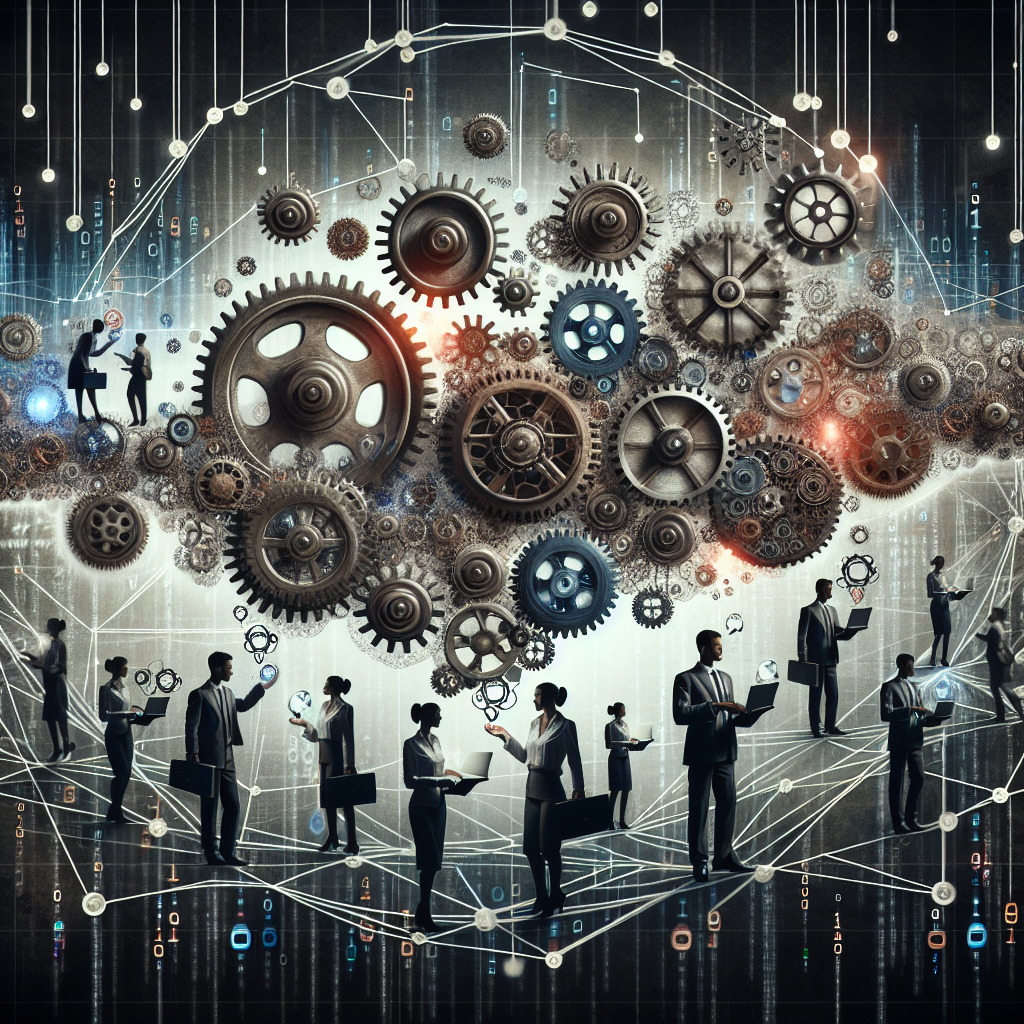Artificial Intelligence (AI) consulting is revolutionizing human resources and talent management practices in organizations around the world. By leveraging AI technologies, businesses can streamline their recruitment processes, improve employee engagement, and enhance overall workforce productivity. In this article, we will explore the benefits of AI consulting for human resources and talent management, as well as address some frequently asked questions about this innovative approach.
Benefits of AI Consulting for Human Resources and Talent Management
1. Improved Recruitment Processes: AI consulting helps organizations automate their recruitment processes, from screening resumes to conducting interviews. AI algorithms can analyze large volumes of data to identify the most qualified candidates for a position, saving time and resources for HR professionals. Additionally, AI can help eliminate bias in the hiring process by focusing on candidates’ skills and qualifications rather than personal characteristics.
2. Enhanced Employee Engagement: AI consulting can help organizations improve employee engagement by providing personalized learning and development opportunities. AI technologies can analyze employees’ skills and performance data to recommend training programs that align with their career goals. This personalized approach to employee development can increase job satisfaction and retention rates within the organization.
3. Predictive Analytics: AI consulting enables organizations to use predictive analytics to forecast future workforce trends and identify potential talent gaps. By analyzing historical data and market trends, AI algorithms can help HR professionals make informed decisions about recruitment, training, and succession planning. This data-driven approach can help organizations stay ahead of the curve and adapt to changing business needs.
4. Enhanced Performance Management: AI consulting can help organizations improve their performance management processes by providing real-time feedback and insights on employee performance. AI technologies can analyze employee data, such as productivity levels and engagement scores, to identify areas for improvement and provide actionable recommendations for managers. This data-driven approach to performance management can help organizations optimize their workforce and drive business results.
5. Streamlined Administrative Tasks: AI consulting can help HR professionals streamline administrative tasks, such as payroll processing and benefits administration, by automating routine processes. AI technologies can handle repetitive tasks more efficiently than humans, freeing up time for HR professionals to focus on strategic initiatives and employee development. This increased efficiency can help organizations reduce costs and improve overall workforce productivity.
Frequently Asked Questions about AI Consulting for Human Resources and Talent Management
Q: How can AI consulting help improve diversity and inclusion in the workplace?
A: AI consulting can help organizations improve diversity and inclusion in the workplace by eliminating bias in the hiring process. AI algorithms can analyze candidates’ skills and qualifications objectively, without taking into account personal characteristics such as gender or ethnicity. By focusing on candidates’ abilities rather than their background, organizations can create a more diverse and inclusive workforce.
Q: Will AI consulting replace human HR professionals?
A: While AI technologies can automate many routine HR tasks, such as resume screening and benefits administration, they cannot replace the human element of HR. Human HR professionals bring empathy, creativity, and strategic thinking to the table, which are essential for building strong relationships with employees and driving organizational success. AI consulting should be seen as a tool to augment HR professionals’ capabilities, rather than replace them.
Q: How can organizations ensure the ethical use of AI technologies in human resources?
A: Organizations can ensure the ethical use of AI technologies in human resources by implementing transparent and accountable practices. HR professionals should be trained on how to use AI technologies ethically and responsibly, and organizations should establish clear guidelines for collecting and analyzing employee data. Additionally, organizations should regularly review their AI systems to ensure they are not perpetuating bias or discrimination in the workplace.
Q: What are some common challenges organizations may face when implementing AI consulting for human resources?
A: Some common challenges organizations may face when implementing AI consulting for human resources include data privacy concerns, resistance from employees, and the need for specialized skills and expertise. Organizations should address these challenges by establishing clear data privacy policies, providing training and support for employees, and partnering with AI consulting firms that have experience in the HR space.
In conclusion, AI consulting is transforming human resources and talent management practices by enabling organizations to streamline their recruitment processes, improve employee engagement, and enhance overall workforce productivity. By leveraging AI technologies, organizations can gain valuable insights into their workforce and make data-driven decisions that drive business results. As AI continues to evolve, organizations that embrace AI consulting for human resources will have a competitive edge in attracting and retaining top talent in today’s fast-paced business environment.

